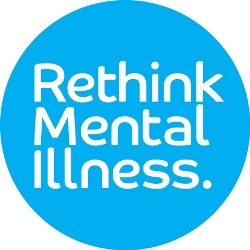A new study claims that vague terminology in Belgium’s assisted dying guidelines is allowing scores of psychiatric patients to be euthanized.

Rethink Mental Illness (Photo credit: Wikipedia)
The worrying findings, published recently in the British Medical Journal Open, are based on a sample of 100 psychiatric patients in Belgium who requested euthanasia in the period 2007-2011.
Researchers found that most of the patients participating in the study had more than one diagnosed mental illness, with depression being the most common (59 patients) followed by split-personality disorder (50 patients).
Out of the 100 patients involved in the review, 48 had their euthanasia requests granted, and 35 carried it out. Among those remaining, 6 committed suicide, one died by palliative sedation, and one by anorexia.
The researchers are not disturbed by the thought of depressed patients being euthanized, but rather say the most pressing concern is to ensure individuals are compos mentis (of a sound mind):
“we wish to underline that each euthanasia request must be scrutinised as a request for effective and far-reaching treatment, and that any such request demands exploration of all implications and clarification of alternatives.”
“…A literature review made clear that the concept of ‘unbearable suffering’ has not yet been defined adequately, and that views on this concept are in a state of flux,” …
“It is generally accepted that this concept is considered to be subjective, dependent on personal values, and that it must be determined in the first place by the patient.”
Fifty-nine of the patients involved in the study were living alone.
– Xavier Symons
 This article is published by Xavier Symons and BioEdge.org under a Creative Commons licence. You may republish it or translate it free of charge with attribution for non-commercial purposes following these guidelines. If you teach at a university we ask that your department make a donation. Commercial media must contact us for permission and fees. Some articles on this site are published under different terms.
This article is published by Xavier Symons and BioEdge.org under a Creative Commons licence. You may republish it or translate it free of charge with attribution for non-commercial purposes following these guidelines. If you teach at a university we ask that your department make a donation. Commercial media must contact us for permission and fees. Some articles on this site are published under different terms.





















































